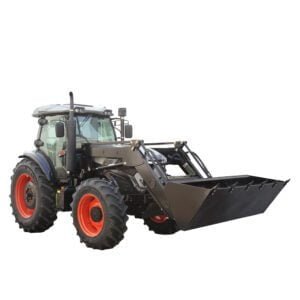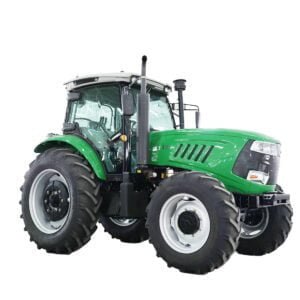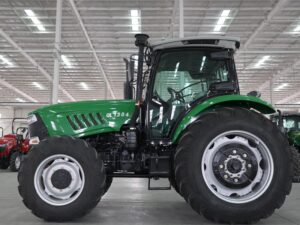Email: [email protected] Whatsapp: 8618266768780
How to Buy a Tractor: Tips and Advice
Welcome to My Blog!
Before we dive into the content, I’d love for you to join me on my social media platforms where I share more insights, engage with the community, and post updates. Here’s how you can connect with me:
Facebook: https://www.facebook.com/profile.php?id=100072217509763
LinkedIn: https://www.linkedin.com/company/74949059/admin/dashboard/
YouTube:www.youtube.com/@tractormanufacturer-lc5qz,www.youtube.com/@excavatormanufacturers-sn9hk
TikTok: www.tiktok.com/@tractormanufacturer, www.tiktok.com/@excavatormanufacturers
Now, let’s get started on our journey together. I hope you find the content here insightful, engaging, and valuable.Buying a tractor is a significant investment, whether you’re a farmer, landscaper, or contractor. A tractor can serve as the backbone of your operation, making various tasks easier and more efficient. However, purchasing the right tractor requires careful consideration of several factors to ensure you get the best value for your money.
In this guide, we’ll walk you through everything you need to know about how to buy a tractor, including key considerations, common mistakes to avoid, and tips for making an informed decision. Whether you’re purchasing your first tractor or upgrading your current machine, this blog will help you navigate the buying process.
Table of Contents
- Introduction: Understanding the Importance of Buying the Right Tractor
- Factors to Consider Before You Buy a Tractor
- Tractor Size and Engine Power
- Tractor Features
- Price and Budget
- The Process of Buying a Tractor
- New vs. Used Tractors
- Choosing the Right Dealer
- Top Tractor Brands to Consider
- How to Finance a Tractor Purchase
- Conclusion: Making the Right Tractor Purchase
- FAQ: Common Questions When Buying a Tractor
Introduction: Understanding the Importance of Buying the Right Tractor

When you decide to buy a tractor, it’s crucial to choose the right one for your specific needs. A tractor that fits your operational requirements can drastically improve productivity, reduce manual labor, and help you tackle a range of tasks, from tilling soil to hauling heavy loads. Conversely, a poorly matched tractor can lead to inefficiency, high fuel costs, and unnecessary wear and tear.
In this section, we’ll explore why it’s so important to make an informed purchase and the benefits of selecting the right tractor for your job.
Factors to Consider Before You Buy a Tractor
Before you go ahead and buy a tractor, there are several factors you need to evaluate to ensure you select a machine that suits your needs. Let’s dive into some of the most critical considerations.
Tractor Size and Engine Power
One of the first factors to consider is the size of the tractor. Tractors come in various sizes, ranging from small compact models to large, heavy-duty machines. The size of the tractor you need depends on the type of work you plan to do. A smaller tractor may be suitable for tasks like mowing lawns, light landscaping, or working in smaller fields. On the other hand, if you’re planning to farm large plots of land, you’ll need a tractor with more power and larger capabilities.
Tractor Size vs. Engine Power
| Tractor Size | Engine Power Range | Ideal For |
|---|---|---|
| Compact Tractors | 15-40 HP | Small-scale farming, landscaping, and property care |
| Utility Tractors | 40-100 HP | Mid-sized farming, construction, and heavy-duty tasks |
| Full-size Tractors | 100+ HP | Large-scale farming, commercial and industrial use |
The engine power is measured in horsepower (HP), which indicates how much work the tractor can do. Make sure to match the engine power to your requirements, considering what attachments or tasks you’ll be using the tractor for.
Tractor Features
Once you’ve narrowed down the size and engine power, the next step is to evaluate the features. Tractors can come equipped with various accessories and features, such as:
- Hydraulic lifts: These can help raise and lower attachments like plows, mowers, or loaders.
- PTO (Power Take Off): A PTO system is used to power attachments like generators, pumps, or augers.
- 4WD (Four-Wheel Drive): A 4WD tractor provides better traction in rough terrain, mud, or uneven ground.
It’s also essential to look at the comfort and convenience features, such as an adjustable seat, air conditioning, or easy-to-use controls, especially if you’ll be spending long hours in the tractor.
Price and Budget
Tractors come with a wide range of prices, depending on the brand, size, and features. Setting a budget is crucial to avoid overspending. However, it’s also important not to compromise too much on essential features just to stay within budget.
To get the best value, research prices and compare tractors across different dealers. Consider financing options if necessary, and remember that buying a used tractor could offer significant savings.
The Process of Buying a Tractor
-
 4 Wheel Drive 140HP Tractor 1604
4 Wheel Drive 140HP Tractor 1604 -
 140HP Farm Tractor 1404
140HP Farm Tractor 1404 -
 130 HP Farmall Tractor 1304
130 HP Farmall Tractor 1304 -
 The Heaviest QILU 260HP Modernization Tractor
The Heaviest QILU 260HP Modernization Tractor -
 Powerful QILU 240HP Heavy Chassis Tractor
Powerful QILU 240HP Heavy Chassis Tractor -
 International Standard Power QILU 220HP Farming Tractor
International Standard Power QILU 220HP Farming Tractor -
 China 100HP Tractor Supplier
China 100HP Tractor Supplier -
 OEM 80HP Tractor Factory
OEM 80HP Tractor Factory -
 China 70HP Tractor Wholesale
China 70HP Tractor Wholesale
Now that you know what factors to consider, let’s take a closer look at the process of actually buying a tractor.
New vs. Used Tractors
One of the first decisions you’ll need to make when you buy a tractor is whether to purchase a new or used model. Both options have their advantages and disadvantages.
- New Tractors: A new tractor comes with a full warranty and the latest technology, but it will be more expensive.
- Used Tractors: A used tractor can save you a lot of money, but it may come with hidden issues or wear and tear. Always inspect used tractors thoroughly and check their service history.
Choosing the Right Dealer
Choosing a reliable dealer is just as important as choosing the right tractor. A reputable dealer will offer a range of high-quality tractors, good customer service, and post-purchase support. It’s also helpful if the dealer has a strong service and maintenance department, which can save you time and money in the future.
Make sure to read reviews and ask for recommendations from others in your industry.
Top Tractor Brands to Consider
When it comes to buying a tractor, certain brands are known for their quality, durability, and innovation. Here are a few of the top tractor brands to consider when you buy a tractor:
- Qilu: Known for its high-quality construction and innovative features.
- Kubota: Offers reliable and compact tractors suitable for small-scale operations.
- New Holland: A well-established brand with a range of tractors for different needs.
- Massey Ferguson: Known for offering versatile tractors that can handle a wide range of tasks.
Research each brand thoroughly to understand which one fits your needs best.
How to Finance a Tractor Purchase

If you’re not paying for the tractor upfront, financing is often an option. Many dealers offer financing programs, and some even have specialized loans for tractors. Be sure to compare interest rates, loan terms, and payment options.
You can also explore other financing options like leasing or taking out a personal loan.
Conclusion: Making the Right Tractor Purchase
Buying a tractor is an exciting but significant investment. By considering factors such as tractor size, engine power, features, budget, and brand reputation, you’ll be in a strong position to make an informed decision. Remember, buying the right tractor is about meeting your specific needs, so take your time to research and evaluate your options.
By following the advice and tips provided in this blog, you’ll be well on your way to making the right choice for your farming, landscaping, or construction needs.
FAQ: Common Questions When Buying a Tractor
How much horsepower do I need in a tractor?
The horsepower you need depends on the tasks you’ll be performing. Smaller tasks like mowing or tilling require tractors with 15-40 HP, while more heavy-duty tasks like plowing large fields require 100+ HP.
Should I buy a new or used tractor?
It depends on your budget. New tractors come with warranties and the latest features but are more expensive. Used tractors can be much cheaper but may come with wear and tear.
What is the difference between 2WD and 4WD tractors?
4WD tractors offer better traction and are suitable for rough terrain or wet fields, while 2WD tractors are ideal for flat, dry surfaces.
How do I finance a tractor?
You can finance a tractor through the dealer, through a bank loan, or via a lease. Always compare interest rates and terms to find the best option.
What are the top tractor brands?
Top brands include John Deere, Kubota, Qilu, and Massey Ferguson. Each offers different features, so consider what suits your needs best.
About Us
Shandong Qilu Industrial Co., Ltd. is a professional manufacturer and exporter integrating the development and production of excavators, loaders and tractors. We provide the best service, absolutely.
Recent Posts
Video demo
-1.png)
Contact Us Today!
Any question, quote or inquiry? Click the button to send message.
Qilu Industrial will always here to help.










